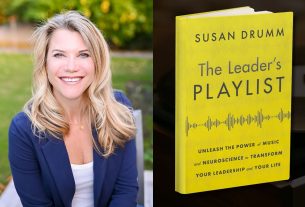Hundreds of Ultra-Orthodox children took part in a high-tech competition organized by the non-profit Babada and the Museum of Tolerance Jerusalem on Tuesday.
The event drew students from schools in Hadera, Netanya, Jerusalem, Beit Shemesh, Petah Tikva and Netivot, who competed in fields like robotics, innovation and reasearch.
“All of our students are united by the desire for knowledge, excellence and the appreciation they deserve,” said Michal Ivgi, founder and director of Babada. “Our vision is to enable young people in Haredi society to realize their personal potential and nurture an aspiration for excellence, knowledge development and skills.”
Throughout the year, Babada meets children in schools for weekly sessions in which they learn about science, entrepreneurship, engineering thinking, robotics and research. The organization runs programs tailored to grades 1-4 and grades 5-8, all adapted to the sector and age.
Established in 2015 with the aim of responding to the growing need in Haredi society to acquire up-to-date scientific and technological knowledge, while fully adapting to the lifestyles and values of the community, the non-profit has already enrolled over 5,000 ultra-Orthodox students in its various programs.
Together with Ivgi, Babada was founded by Prof. Amnon Shashua, CEO and founder of Mobileye and Israel Prize laureate, and is also supported by Elie Wurtman, founder and managing partner of the venture capital fund PICO Venture Partners, the Maimonides Fund, Kirsch Foundation, Russell Berrie Foundation and more.
“We are proud of the young students from ultra-Orthodox society who are working today to learn the tools of tomorrow. We believe that this is the way to ensure a shared and good future for all of us,” said Jonathan (Yoni) Riss, MOTJ’s Director of Activities.
“The Museum of Tolerance Jerusalem, which recently began partial activities at a time of increasing social polarity and divisive news events, is committed to expanding the circle of discourse and inclusion of all segments of Israeli society,” he added.
Over 370,000 students study in the Haredi elementary and secondary education system, constituting about 25% of Hebrew-language students. In a comparative measurement conducted by the association accompanied by Dr. Hagit Hacohen Wolf, an expert in measuring social organizations from the Hebrew University, a clear advantage has been seen for students in the program compared with a control group in spheres such as the ability to work with a computer, to perform tasks in a team with friends, to learn new materials and more.
“It is a great honor to be a partner in building and expanding Babada, a project that teaches innovation and problem-solving skills in Israel’s ultra-Orthodox communities,” said Wurtman. “I am excited to be part of the organization’s continued success.”
The article was written in cooperation with the Museum of Tolerance Jerusalem.



